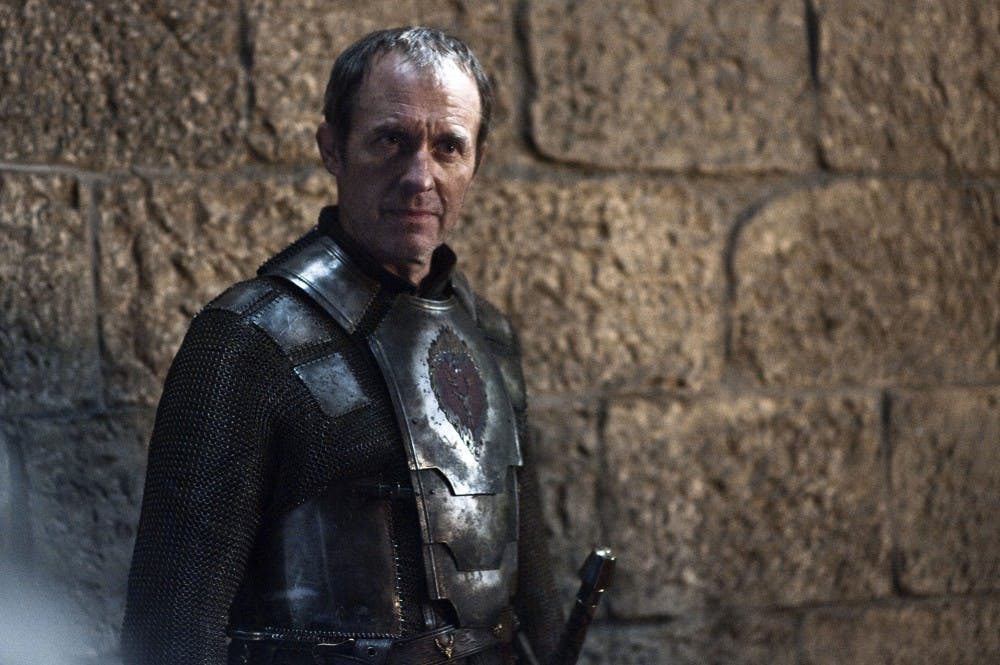I knew I was done with “Game of Thrones” after the penultimate episode of season five, when Stannis Baratheon burned his daughter Shireen alive in a battlefield sacrifice to the Lord of Light.
I loved him. I tagged him on my high school Tumblr as #kingofmyheart. I relate to his middle child syndrome. I think he’s a DILF.
I respect his actor Stephen Dillane, a stage veteran who managed to squeeze some gravitas out of dialogue that sounds like it was written as an afterthought. I skimmed the books for chapters narrated by Davos Seaworth, his faithful Lord Hand who adored him more than even I could.
By season five, Stannis was an artifact of the narrative heights “Game of Thrones” reached in its early days. Under all the sex and dragons, it was a political drama. The War of the Five Kings modeled the dos and don’ts of governance like a Shakespearean history or presidential biopic.
Stannis was my king because he had the legitimacy and credentials to lead. He was a true king for winter, whose bluntness and austerity would crush political machinations of the the King’s Landing of season one. He was the king who cared enough to go to the Wall.
I get emotional imagining teenage Stannis besieged at Storm’s End during Robert’s Rebellion, starving alongside his men and raising Renly in wartime.
That Stannis commits his two worst atrocities against his brother and daughter makes him a tragic hero as well as an archetypal king.
His death was deserved, absolutely. But his arc needed more care, as much as the story of anyone who mistakenly creates his own tragedy. Stannis was a tragic hero of classical proportions, whose downfall was as human and self-wrought as that of Oedipus.
It’s not that Stannis would never kill Shireen, but the lead-up to her death was too shallow to do the Dragonstone Baratheons any justice
Dillane — who went down in British theater history as a fully-nude Hamlet in the 1990s — would have had a much better time on the show given material by writers who recognized the richness of Stannis’ plot.
Instead, they made him a weird zealot whose whole personality is correcting people’s grammar.
Morally bankrupt as Westeros is, Stannis emerged as a dark horse for his purported principles. He was driven by duty and misguided by Melisandre. The horrifying, masculine Reddit cult of “Stannis the Mannis” is nearly matched by a faction of female fanfic writers who romanticize him into a Byronic hero.
But the sloppiness of Shireen’s death shows “Game of Thrones” only selectively cares about its characters’ interior lives. That disinterest in moral crisis guaranteed my disinterest in the future of this show.




